Who we are
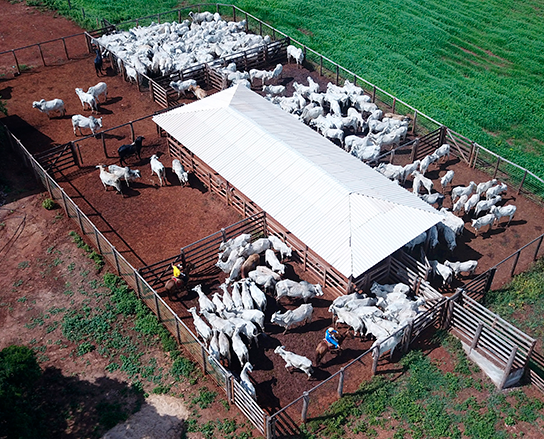
The Brazilian Institute of Geography and Statistics (IBGE) estimates that there is more than 200 million head of cattle in Brazil. That's almost one cattle per inhabitant.
With impressive and constantly growing numbers, Brazil is the largest exporter and the second-largest producer of beef in the world. However, with around 40% of cattle production concentrated in the Amazon region, in the states of Acre, Amapá, Amazonas, Mato Grosso, Pará, Rondônia, Roraima, Tocantins and Maranhão, cattle ranching - and the deforestation associated with the activity - are at the centre of the debate on the consequences of the climate emergency for Brazil.
Created in 2019 on the initiative of Imaflora, in partnership with the Federal Public Prosecutor's Office, Beef on Track recognizes the complexity of the sector, aims to accelerate the implementation of the commitments made by the beef chain in the Amazon and seeks to encourage a chain free of socio-environmental irregularities.
The path from the cattle raised in millions of Brazilian farms to the arrival of meat on the consumer's table involves an extensive production chain. In this path, the commitments of the beef chain are central.
With its initiatives, Beef on Track seeks to put cattle producers, slaughterhouses, supermarkets, investors, public actors and civil society organizations on the same page. The hub's objective is to promote good practices through monitoring, auditing and reporting processes and tools, increasing transparency in search of a beef chain free of deforestation, slave labour or invasion of public lands.
The programme also collaborates with the production and sharing of knowledge and technical expertise, which may stimulate the creation of policies and procedures for responsible cattle farming. Follow and participate in Beef on Track.
ABOUT
IMAFLORA
The Institute for Forest and Agriculture Management and Certification (Imaflora) is a non-profit civil association created in 1995 under the premise that the best way to preserve tropical forests is to give them an economic purpose, combined with good management practices and the responsible management of natural resources. Imaflora seeks to influence the production chains for forest and agricultural products, to collaborate in the creation and implementation of public interest policies and, ultimately, to make a difference in the regions where it operates, creating models for land use and sustainable development that can be reproduced in different municipalities, regions and biomes of the country.
Team

Marina Piatto
As the Executive Director of Imaflora, Marina has a degree in Agronomic Engineering from USP - ESALQ, a master's degree in Tropical Agriculture from the University of Bonn, Germany, and has worked for over 15 years on agricultural chains and climate change. At Imaflora, she managed the Agriculture, Livestock and Climate Projects area. In 2020, she took on the role of executive director and is dedicated to building networks and strategies to increase deforestation-free production and promoting low-carbon agricultural practices and social rights in the commodities sector, such as soy and livestock in the Amazon and Cerrado.

Lisandro Inakake
An agronomist from ESALQ, Lisandro has been working at Imaflora since 2009, focusing on certification, land use monitoring, traceability, and rural development. As a project manager leading the Beef on Track initiative, he aims to promote transparency and credibility in the supply chain by implementing good practices, environmental conservation, and social safeguards.

Guilherme Whyte
An environmental engineer from Unesp with an MBA in Agribusiness from ESALQ, Guilherme works as a project coordinator at Beef on Track, leading engagement efforts with slaughterhouses and managing data for the Legal Meat Agreement (TAC da Carne Legal). His goal is the responsible and sustainable transformation of the livestock chain in Brazil.
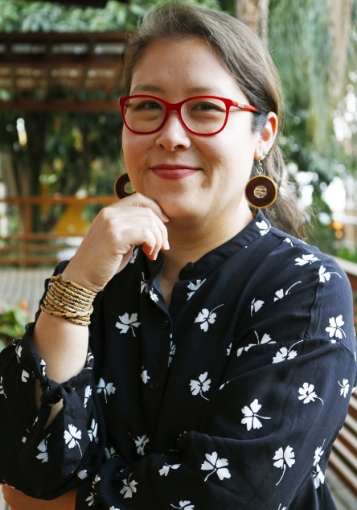
Louise Nakagawa
As a project coordinator, Louise is a biologist with a Master's and PhD in Energy from UFABC, with a doctoral internship at Wageningen University and a post-doctorate at the University of Liverpool. With extensive experience in the third sector, focusing on Governance, Sustainability, and Rural Development within the soy and beef value chains.
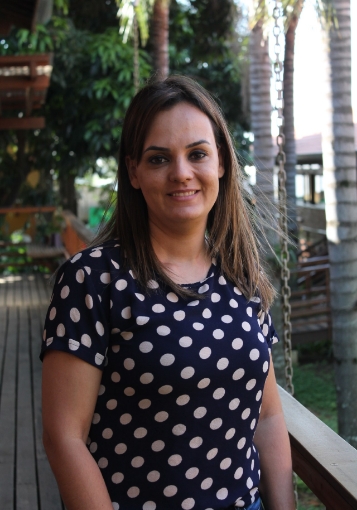
Fernanda Tasca
An environmental engineering analyst worked in the pulp and paper sector from 2013 to 2016, focusing on environmental management (ISO 14.001), developing the management system and ensuring compliance with legal requirements. She also worked with internal audits and external certification audits.
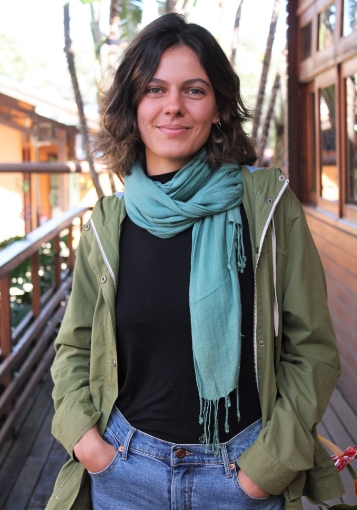
Sofia Bosque
As a socio-environmental assistant, works towards eliminating deforestation and human rights violations. A forestry engineer, licensed in Agricultural Sciences from ESALQ, has worked in Environmental Education and sustainable rural production and community forest management in the Amazon and ecological restoration and silviculture of native species in the Atlantic Forest.

Marcella Cavalcanti
An environmental engineering graduate from Unicamp, she has experience in academic research and internships in both the private industry and state environmental agencies. At Imaflora, she is an assistant in Beef on Track and works on research and production of materials on the livestock and soy chains.
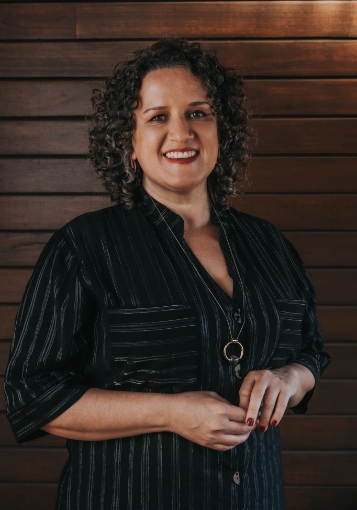
Daniela Marques
Journalist and digital communication specialist has worked in press relations, communication coordination in different sectors, and management of influencer relationship programs. She was an editor for a portal for the Third Sector and has participated in other civil society organization initiatives







